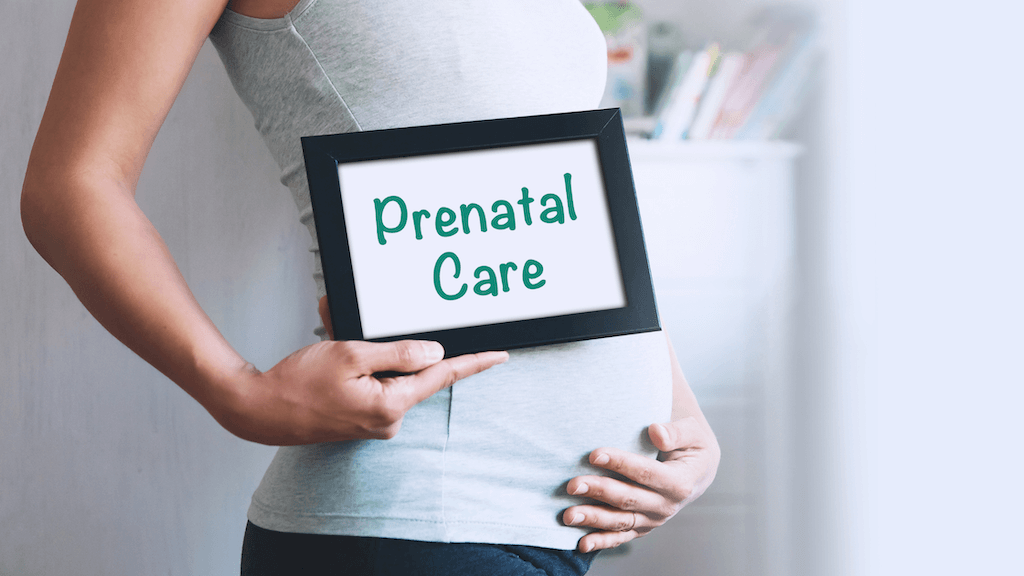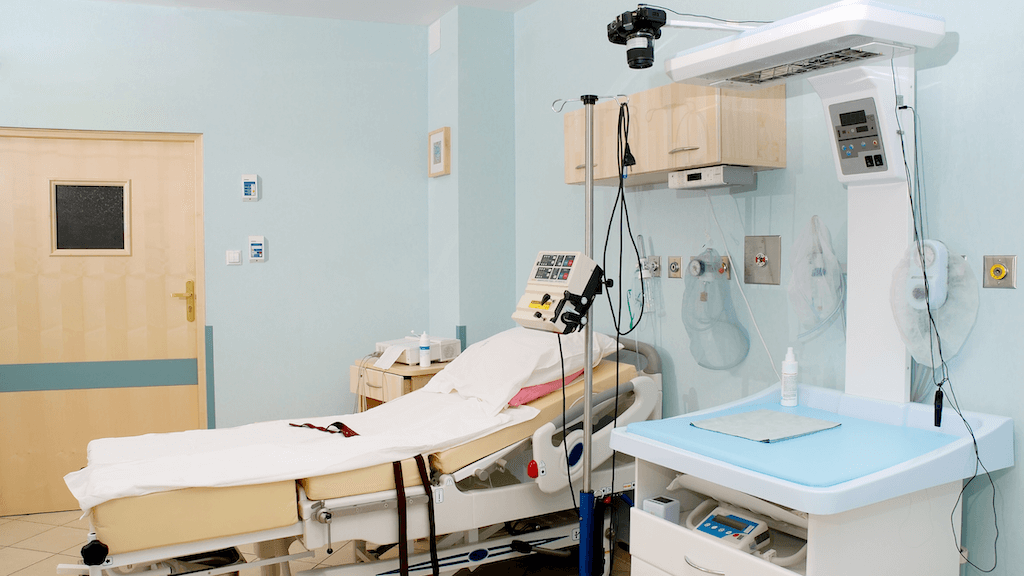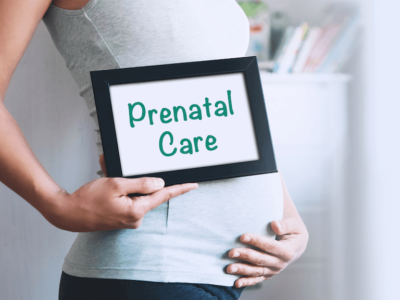
Oh, you just heard the good news that you are pregnant. Congratulations.
It is so exciting!!
Once you know you’re pregnant, you immediately start caring for your unborn baby. Especially if it is your first time, it has an indescribable connection knowing you will be a mother.
Not an exaggeration; I believe the moment I know I was pregnant is when I became a mother.
Now, what is next? You know you need medical care for your pregnancy and delivery. You might not be sure where to go or which provider to choose.
No worries! I have got you covered. Here in this post, I will cover what prenatal care is? What are prenatal care health providers? Where to get and how often do you go for prenatal checkups.
Additionally, I will also share my experience and talk about choosing prenatal care and getting the right service for pregnancy and childbirth that meets your needs.
I hope the information will help you choose the best care that fits your needs.
What is Prenatal Care?
Prenatal care is medical care you get during pregnancy. At each visit, your health care provider checks on you and your growing baby.
Prenatal care involves routine checkups like measuring blood pressure, weight, belly size, and baby’s heartbeats.
Also, your health care provider runs blood tests and checks for various health conditions such as diabetes, sexually transmitted disease, and others. Plus, they look at essential vitamins and mineral levels in your blood, like vitamin D or iron.
According to the various tests you have done, your healthcare provider may recommend a specific diet, prenatal vitamins, exercise, and even further medical treatment if needed.
Moreover, an ultrasound or sonogram may be performed. For example, an ultrasound is done to make sure of the baby’s development, baby or placenta position, and to confirm your due date along with your estimated due date from your last menstrual period.
What Are Prenatal Care Service Providers?
We will see the broader classification of prenatal care service providers with a detailed variety of available healthcare professionals.
Obstetrics and Gynecology (OB-GYN) Doctors
OB-GYN doctors are medical doctors with obstetrics and gynecology specialty.
These doctors can do all the care during pregnancy, help with childbirth, and perform surgery like cesarean section (C-section) or any other surgery related to the uterus.
Most OB-GYN tends to depend on technology, relying on continuous electronic fetal monitoring, IV fluids, labor induction, and medications.
Across the board, OB-GYNs are the most likely of healthcare providers to use interventions during birth due to their training. OB-GYNs work only under a hospital setup.

Family Physician Doctor
A family physician doctor is a doctor who can take care of every member of your family. This doctor can take care of you before, during, and after pregnancy.
Maternal-Fetal Medicine (MFM)
MFM specialist is an OB-GYN with education and training to take care of high-risk pregnancies.
Midwives
Midwives are trained health care providers with expertise and skills in supporting mothers and care for infants; a specialization called midwifery.
Historically, it was common practice for midwives to attend most births as midwifery have been around for centuries.
They tend to focus on low-risk, low-tech births for women who want to avoid surgical intervention, epidurals, pain medications, and drugs that induce labor.
Studies show that women have fewer medical interventions, with no adverse health implications on baby or mom with midwifery care.
Midwives are not doctors. While licensed and certified midwives are highly trained, they cannot perform cesarean sections on their own.
While midwives can attend low-risk births without a doctor present, they’ll have to get an on-call physician to perform the surgery in the event of a complication like an emergency C-section.
In some states in the USA, midwives must work in a collaborative practice with a doctor, and in others, they can work in a solo practice.
They may deliver babies at birthing centers or homes, but most can also deliver babies at a hospital.

Midwives can have different levels of training. These are widely available levels of midwives in the USA.
- Certified Nurse-Midwives (CNMs)
CNMs are registered nurses who have graduated from an accredited nurse-midwifery education program and have passed a national exam. They can practice in all 50 states and the District of Columbia.
- Certified Midwives (CMs)
CMs are non-nurse midwives who have a bachelor’s degree or higher in a health field, have completed an accredited midwifery education program, and have passed a national exam. Only a few states permit CMs to practice.
- Certified Professional Midwives (CPMs)
CPMs are non-nurse midwives who have the training and clinical experience in childbirth, including childbirth outside of the hospital, and have passed a national exam. Not all states permit CPMs to practice.
- Lay Midwives
Lay midwives are not certified or licensed but, have apprenticed or received informal training.
Where to Get Prenatal Care?
- Hospital and Clinic
Hospitals and clinics are the most common and available prenatal care service providers in many countries.
The primary caregivers in a hospital are OB-GYN doctors. There are chances midwives are working under hospitals or clinics as the primary caregiver for prenatal and childbirth.

- Birth Center
Birth center are home-like facilities for giving birth. And provide family-centered care to expectant mothers. The primary service providers in the birth center are midwives.
According to the American College of Obstetricians and Gynecologists (ACOC), birth centers are part of the healthcare system in the USA that provides prenatal care for low-risk women with uncomplicated singleton term vertex pregnancies who are expected to have an uncomplicated birth.

How Often Do You Go for Prenatal Care Checkups?
Most prenatal care checkups can follow a schedule like this:
- Weeks 4 to 28 of pregnancy. Go for one checkup once a month
- Weeks 28 to 36 of pregnancy. Go for one checkup every two weeks
- Weeks 36 to 41 of pregnancy. Go for one checkup every week
If you have complications during pregnancy, your provider may want to see you more often.
Your partner or support person (a friend or someone from your family) is welcome at your prenatal checkups.
How to Choose the Right Prenatal Care?
Choosing the proper prenatal care is a key to have a healthy pregnancy, successful childbirth outcomes. These are some of the tips to select the best prenatal care that meets your needs.
- Know What You Need
Do you have a low-risk pregnancy or have some complications that need extra medical attention? Do you want to avoid medical intervention, or do you want interventions?
It is important to answer these questions to choose the right prenatal care.
If you have a low-risk pregnancy and want to avoid medical interventions, midwives are the best choice.
Depending on the availability in your area, you can work with midwives in a birth center or a hospital. You can even arrange a home birth if you wish to have your baby in the comfort of your own home.
In some cases, however, hiring a midwife just might not possible or preferred. It is still possible to have natural childbirth with an OB-GYN but, you’ll need to find one who prioritizes low- intervention, vaginal deliveries, and your birth plan.
If you have complications during your pregnancy and need medical attention, OB-GYNs and MFM doctors at the hospital are the best option.
- Research Your Area
Do your research in your area and gather information about the midwives, doctors or birth centers, and hospitals.
Plus, ask your friends, family members, colleagues, and neighbors for recommendations. So that their direct experience and review help you choose one.
Here are a few links to search online for health care providers available in the USA.
- OB-GYN – American College of Obstetricians and Gynecologists
- family physicians – American Board of Family Medicine
- MFM – Society for Maternal-Fetal Medicine
- midwives – American College of Nurse-Midwives
- Visit Providers
After you narrow down and have a shortlist of prenatal care providers in your area, make an appointment and do a visit.
Meeting in person and having some connection helps you to have a clear choice and answer all your questions.
- Advocate for Your Health
I believe we are health care providers for our health. Whatever kind of health care we are going to, we have to advocate for our choices.
Therefore, it is good asking questions that you don’t understand. And says NO when you don’t like the procedures. Or say I need to get a second opinion, I need to do my research or speak whatever you feel.
Even if everyone is not a medical expert, your gut feeling about your body should be heard, in my opinion. Nobody knows your body other than yourself. Therefore, speak your mind.
My Experience with Prenatal Care and Childbirth
I prefer fewer medical interventions and want a natural birth. Because pregnancy and childbirth is a natural process. I am not comfortable in a hospital setup and unnecessary interventions.
I was in Ethiopia for half of my first pregnancy. Due to the absence of midwives in my area, I saw an OB-GYN doctor at Hemen Maternal and Children’s Health.
After I came to the USA, I looked for midwives in a birthing center. I have visited a couple of them in person, had conversations, and chosen Bella Birth Center.
However, due to my lengthy labor, I gave birth in a hospital. Still, my midwife was with me the entire time.
And the OB-GYN doctor who helped me with my delivery is working with my midwife. As a result, I got a minimal medical intervention that is needed with my consent. You can read my birth story here for the whole story and details.
Again, with my second pregnancy now, I am seeing the same midwives in a birthing center. I am comfortable and happy with the service I am getting.
What is your choice of health care provider for prenatal care and childbirth? What is your experience? Let me know in the comment below.
Source:


 Homemade Almond Butter
Homemade Almond Butter
This is excellent Hanna. Its a great place to start for those unfamiliar with the U.S system or even those who have been here and are new to the maternal and child health care system. Thanks for taking the time to write this.
Thank you Hiwote!!
I am glad you find it informative.